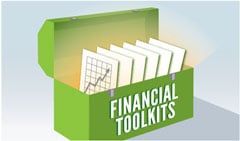'Tis the Season!
Just when it seems things can’t get any busier – December arrives. This month is typically loaded with family obligations, year-end business deadlines, and increased spending. This potent mix can wreak havoc on your budget and ultimately your ability to meet your own financial goals. To sleep a little easier this month and next, it may help to set aside a few hours now to firmly review your financial position and consider your goals and commitments in the coming New Year and “tax season”.
Here are some year-end tips to help you strengthen your financial standing as we head into 2013:
- It is important to realize that long-term capital gains tax rates are currently low at a Federal rate of 15%. Therefore, you may wish to trigger these taxes before 2013, in anticipation of capital gains tax rates increasing.
- If you are interested in making a monetary gift, now is the time to determine exactly how much you would like to give, keeping in mind the annual gift-tax exclusion. The annual tax exclusion amount applies to a total gift to one person, not to a grand total of all gifts in a year. For 2012, an individual is allowed a gift of up to $13,000.00 per recipient, per year - tax free. Federally recognized married couples may exclude a gift of up to $26,000.00 to an individual. If you are doing a joint gift and either gift exceeds $13,000.00, special circumstances apply. Please refer to the gift splitting rules and your tax advisor.
- When considering charitable donations, consider gifting appreciated assets, such as stocks. The full value of appreciated assets may be deductible and you may be able to avoid paying capital gains tax.
- You may also want to consider re-setting your cost basis with your appreciated assets - in other words, sell the assets with a gain and then buy them back at the current value. This way any further appreciations can be deferred to other years.
- December is a great time to review your portfolio and decide if it is positioned where you want it to be. Market fluctuations may have affected your asset allocation, and it may be time to readjust. You can compare year-end financial and investment statements to the previous year, this will help to highlight changes to your financial situation. Review your retirement savings at this point too – does it make sense to maximize your contributions in the coming year or should you pay the tax now and build your after-tax investments?
- Review your Trust(s), Will(s), Power of Attorney (POA), and Healthcare proxies to make sure they’re current and still reflect your wishes.
- Remember that January is a fresh start. Set goals for the following year that match your dreams. Perhaps you wish to start a business, take a college course, or travel the globe. Take the right steps to make these dreams a reality. Make some of your financial goals easily attainable, some that require a little work, and some that are a stretch. This can be a challenging and fun exercise. Set checkpoints in the coming year which will trigger your review and remind you to keep working towards your financial goals and dreams.
- Remember, year-end financial moves don’t have to be done for tax reasons alone. Look at the big picture: your decisions must make financial sense overall.
Having taken the time to organize your finances from this past year and into the next, perhaps you’ll feel more confident as you tackle the perennial struggle with other New Year’s Resolutions. Good luck and Happy New Year!
Heidi Clute, CFP® of Clute Wealth Management in South Burlington, VT and Plattsburgh, NY, an independent firm that provides strategic financial and investment planning for individuals and small businesses in the Champlain Valley region of New York and Vermont. For informational purposes only. LPL Financial does not offer legal or tax advice. Securities offered through LPL Financial, Member FINRA/SIPC.


